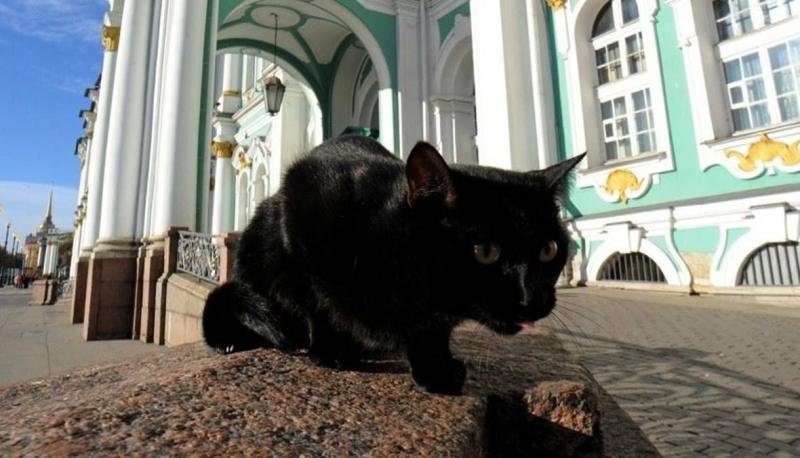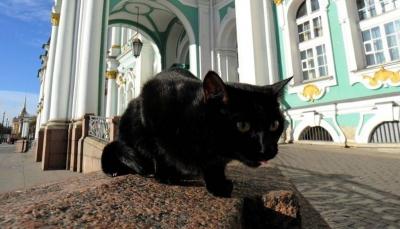Do you believe in superstitions? There isn't a clear answer to this question; responses range from ridicule in prosperity to fear in adversity. As they say, a person is an enemy of what they do not understand, and those who fear evil often encounter it, especially when linking any superstition to a good omen or a bad sign. However, perhaps superstitions have logical explanations that offer human justification. Here, we mention the five most common superstitions, according to a report published by "India Times," and trace them back to their possible logical roots.
**If a Cat Crosses Your Path... Wait!**
They always wonder: "What has the cat done to deserve such strange superstitions, to be categorized as ominous?" For instance, in India, encountering a cat is seen as a bad omen, especially if it is black. This belief is not limited to Indian society alone; many other communities associate black cats with black magic. Beyond superstition, in ancient times, black cats resembled wild animals and would move when sensing danger, leading people to associate them with threats that "only cats can sense." Thus, the superstition of magic became attached to them. When a black cat crosses a path, popular belief holds that it is either following a predator or is itself a predator. In either case, danger is imminent, and there is no clear "element" in this fear equation except for the shiny black cat reflecting light in its eyes. This is frightening!
**My Enchanted Mirror... My Broken Mirror!**
For those who remember "Mirror, mirror on the wall" from the story of the evil witch and Sleeping Beauty. The story ended with the mirror shattering, and a shard entering the witch's heart. According to the report by "Times of India," folklore suggests that breaking a mirror results in seven years of bad luck, during which one will be plagued by misfortune in all aspects. "The belief in this superstition is rooted in the idea that mirrors contain alternate worlds and spirits." However, let's set aside the exaggerated popular belief. One possible explanation for this superstition is that mirrors were once rare and valuable, "likely leading to the belief that they absorb energies and carry spirits based on their reflective properties," according to the same report. The insistence on the bad luck associated with breaking a mirror might stem from its rarity and high price, encouraging careful handling of this rare object.
**Cutting Nails After Sunset is Forbidden**
Why? What are the origins of this superstition? According to the report, there are no strange beliefs or bad omens involved. It's simply that people used to avoid cutting their nails after sunset when it was dark, without light or electricity. Those who did this would hurt themselves in the dark and bleed until sunrise.
**Do Not Sit Under the "Sacred Fig" at Night**
This superstition is still prevalent today in some communities. It is said that sitting under the "sacred fig" (Peepal) tree at night brings bad luck because it is a dwelling place for ghosts or spirits, and those who sit under it risks associating with these spirits. There is a logical explanation for this superstition, as presented by "Times of India": It is well-known that the "sacred fig" releases a significant amount of oxygen during photosynthesis in the morning, while it releases more carbon dioxide at night, just like any green tree. Sitting under it at night means inhaling carbon dioxide, which is unhealthy. Moreover, the tree is densely foliated, housing owls and crows, which are associated in folklore with misfortune.
**Lemon and Hot Pepper on a Cotton Thread**
The report by "Times of India" mentions that Indians still hold on to a traditional practice of hanging a lemon and hot pepper on a cotton thread outside their homes, "which, due to their strong properties, can repel evil spirits and negative energy." In reality, there is a potentially logical explanation for this: lemons and hot peppers have strong odors and contain natural chemicals that repel insects. By hanging a lemon and hot pepper at their door, Indians were attempting to keep insects from entering their homes, so they wouldn't spoil food or spread diseases.




